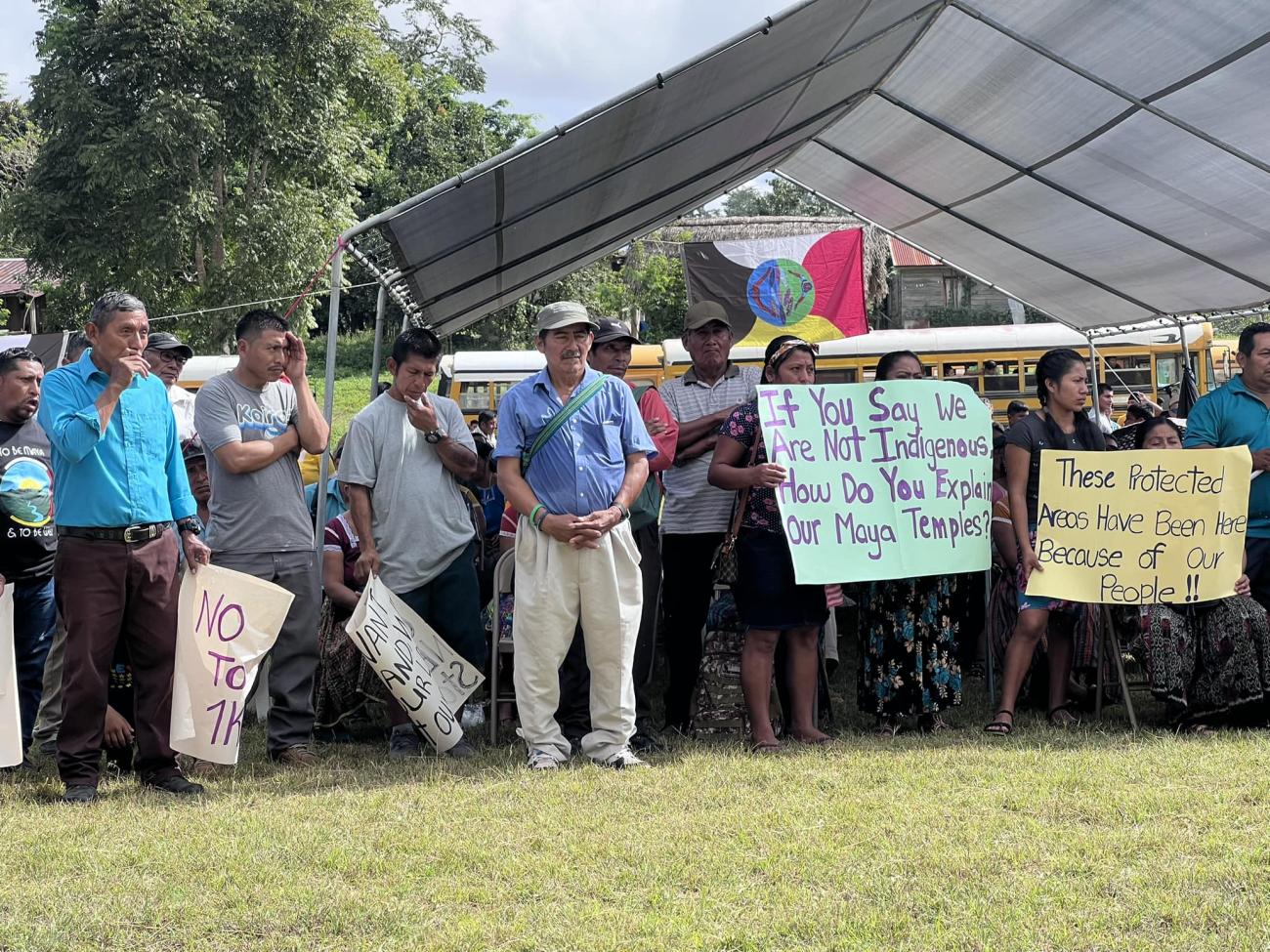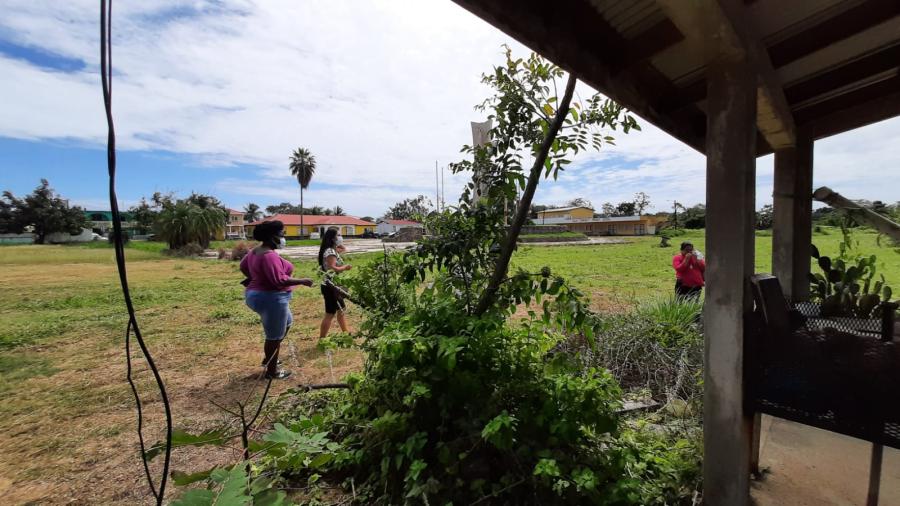
Cultural Survival expresses its solidarity with the Maya Peoples, the Maya Leaders Alliance, and the Toledo Alcaldes Association, in southern Belize in demanding that the State of Belize comply with the 2015 Caribbean Court of Justice (CCJ) ruling and respect Indigenous rights to land and Free, Prior and Informed Consent in every matter that affects Maya Peoples.
In 2015, the Caribbean Court of Justice affirmed the rights of the Maya People in southern Belize to the lands that they have customarily used and occupied in a landmark land rights case Maya Leaders Alliance, et al v The Attorney General of Belize. Despite this precedent-setting ruling and despite the government’s obligation to implement the CCJ Consent Order, this has yet to be fulfilled. The government continues to act in bad faith regarding the implementation process and has yet fully to “develop the legislative, administrative and/or other measures necessary to create an effective mechanism to identify and protect the property and other rights arising from Maya customary land tenure, in accordance with Maya customary laws and land tenure practices,” as mandated in Paragraph 3 of the CCJ Consent Order.
The State has made some recent attempts to develop a policy that would inform the legislative mechanism to protect Maya property rights; however, these attempts have been conducted without the full Free, Prior, and Informed Consent or participation of affected Maya communities. In the most recent draft Maya Customary Land Policy, dated December 8, 2023, the State inserted last-minute language that violates the property rights of the Maya Peoples of southern Belize. Paragraph 5 of the policy has raised serious concern for the Maya Peoples as it severely reduces village lands to a one-kilometer circular area from the center of the village for villages that have a population of 500 or less. For villages with 1000 residents or less, the circular area would increase to 2 kilometers. Similarly, for villages with more than 1000 residents, the circular area would increase to 3 kilometers. These metrics would be devastating for the lives and livelihoods of the Maya communities whose lifeways and livelihoods are intimately connected to their lands, as it excludes farmlands, hunting and gathering grounds, other areas with important resources, areas of spiritual importance, as well as some residential areas. The draft policy also does not recognize public highways, roadways, National Forests, and National Parks currently within Maya customary lands as belonging to them (Paragraph 15). While the policy allows Maya villages that desire a larger portion outside of the one-kilometer circular area, to apply for additional lands it must prove continuous possession and use of the land for at least 30 years prior to the date of said application. The Maya have already proven their use and occupancy of their customary lands in the various Maya land rights decisions. This has raised serious concerns among community members.
What is most alarming is that before the insertion of these new terms Maya Peoples were not consulted. The State did not meet the minimum standard required under FPIC. The Maya people have adamantly rejected the current draft of the Maya Customary Land Policy, dated December 8, 2023.
The State of Belize must uphold the rule of law by implementing the CCJ Consent Order in good faith collaboration and consultations with the Maya communities. It also has a legal obligation to uphold international conventions it has ratified, such as CCPR, CEDAW, CERD, CESCR, and CRC. Further, the Supreme Court in the Aurelio Cal v. Belize, Supreme Court of Belize (Claims No. 171 and 172 of 2007) where on October 18, 2007, the Court held that Belize has an obligation not to disregard the United Nations Declaration on the Rights of Indigenous Peoples (UNDRIP).
Cultural Survival urges the State of Belize to immediately suspend the problematic paragraphs in the draft Maya Customary Land Policy dated December 8, 2023, and bring it into conformity with national and international human rights legal instruments; commit to a transparent, participatory, and fully inclusive dialog with all communities affected, and fully respect Maya Peoples’ right to Free, Prior and Informed Consent in all matters that concern them.
Background information on the case:
https://www.culturalsurvival.org/news/ongoing-battle-justice-maya-peoples-belize-fight-their-lands
https://www.culturalsurvival.org/news/belize-fails-obtain-maya-consent-consent-protocol

